Nicola Bulley – live: Lancashire police and diver Peter Faulding criticised in case review
Lancashire police and diver Peter Faulding have been criticised in an independent review into the force’s handling of the disappearance of Nicola Bulley released this morning.
The force’s disclosure of personal information about the missing mother’s health struggles was “avoidable and unnecessary”, the review led by the College of Policing has found.
Meanwhile, the report said Lancashire Police felt some of Mr Faulding’s behaviour and activities “caused challenges to the investigation”, including unwarranted distress and false alarm for Ms Bulley’s family after he told them he thought he had found her body.
Ms Bulley drowned after accidentally falling into cold water, an inquest ruled in June. The 45-year-old had vanished after dropping off her daughters, six and nine, at school and taking her usual dog walk along the River Wyre in St Michael’s, Lancashire, on 27 January.
The search for Ms Bulley and the subsequent police investigation received nationwide coverage with huge interest on social media.
The force faced heavy criticism over its disclosure of Ms Bulley’s personal information, such as that she had “alcohol issues” and had been going through the menopause, with even the Prime Minister expressing concern.
Key Points
Nicola Bulley police review criticises force for revealing health struggles
‘Police must address damaging assumptions about female victims,’ says Women’s Committee chair
Probe into press coverage of Nicola Bulley case not ruled out, says watchdog
Underwater search expert criticised in review of missing mother case
Relationship between police and media needs to be rebuilt, finds review
Who was Nicola Bulley?
‘Most significant report into police and press relationship since Leveson Inquiry'
13:52 , Tara Cobham
Rebecca Camber, chairwoman of the Crime Reporters Association said of the report into the coverage of the Nicola Bulley disappearance: “This is the most significant report into the relationship between the police and press since the Leveson Inquiry.
“To inform the public about the work of policing, a successful working relationship between the police service and the media is crucial.
“Media reporting not only helps solves crimes, but it also helps bring offenders to justice and keep communities safe.
“This is a watershed moment for policing.
“It is an opportunity for all forces to rebuild this vital relationship.
“Police must be more open and honest if they are to regain the public’s trust and confidence.”
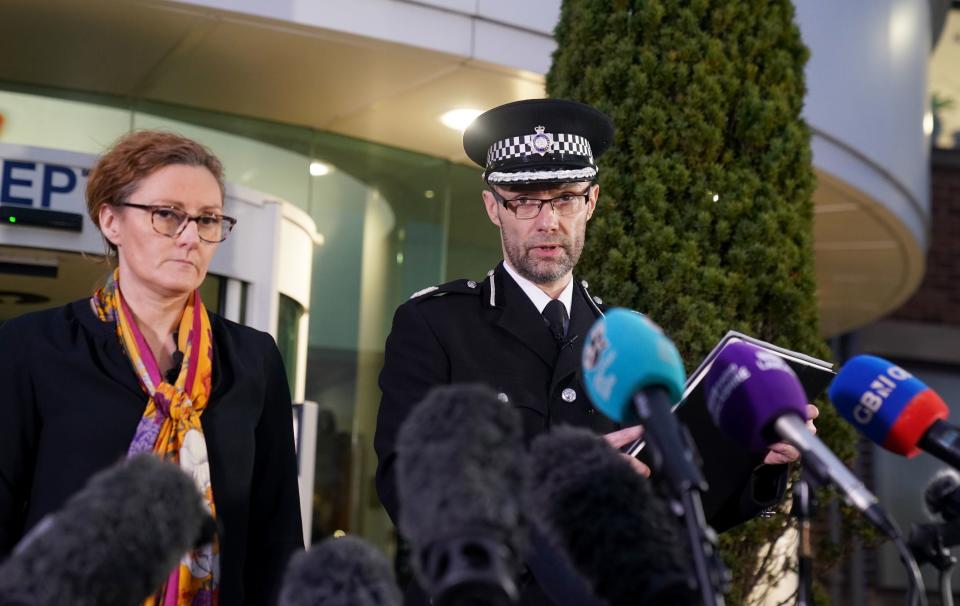
‘Nicola’s family must and will remain at heart of everything’
13:12 , Tara Cobham
National Police Chiefs’ Council chairman Gavin Stephens said: “My thoughts today remain with Nicola’s family and friends as they continue to come to terms with their loss.
“I welcome the findings of the review, and police chiefs will now work closely with the College of Policing to address the recommendations and ensure that the improvements needed are made across policing, as they extend beyond this particular case.
“All chiefs are committed to learning and improvement, and we will report progress.
“I hope that others in the media, and users of social media, also reflect on the findings and consider what changes they can make when such tragic circumstances arise.
“Nicola’s family must and will remain at the heart of everything we now do to act on the review’s findings.”

Information Commissioner says lessons should be learned
12:51 , Tara Cobham
Information Commissioner John Edwards said lessons should be learned after a review found the disclosure of personal information about Nicola Bulley’s health struggles by police was “avoidable and unnecessary”.
“It’s important that lessons can be learned from this tragic case, particularly around what information can be shared during a fast-paced investigation,” Mr Edwards said.
“What should be clear from this report, which we contributed to, is that there are stringent laws protecting how personal information is used and shared in the UK.
“Police must demonstrate that sharing personal information is proportionate and necessary to protect the public and investigate crime.
“Our thoughts remain with Nicola Bulley’s family and friends”.
Relationship between police and media needs to be rebuilt, finds review
12:47 , Tara Cobham
The relationship between police forces and mainstream media needs to be rebuilt in the wake of the Nicola Bulley case, a new review has found.
The report released on Tuesday into Lancashire Constabulary’s handling of the case said: “The review found the wider relationship between the police and the media to be fractured, and identified that action needs to be taken on all sides to help build trust.”
It added that the impact of social media on police investigations and public confidence is significant and must be acknowledged.

Watch: Missing mother-of-two ‘could not have been found sooner’
12:20 , Tara Cobham
Missing mother-of-two Nicola Bulley ‘could not have been found sooner’, a police review has found.
Ms Bulley disappeared while walking her dog on January 27, last year. Her body was found a mile from where she vanished in Wyre, nearly three weeks later.
At a press conference following a review by the National College of Policing, Andrew Snowden, Police and Crime Commissioner for Lancashire Police said: “I asked the college to notify me immediately if they discovered anything that would amount to action needing to be taken against any officer or employer of the constabulary for misconduct or negligence of duty or anything that would have altered the outcome of the search or indicated Nicola could have definitely be found sooner.
“There have been no such findings.”
Lucy Leeson reports:
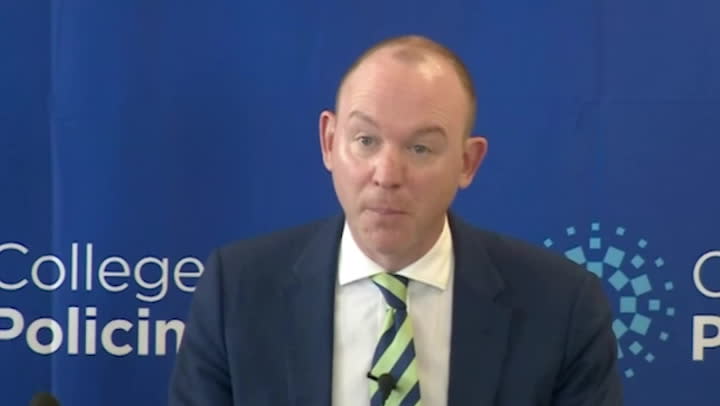
Nicola Bulley ‘could not have been found sooner’, police review finds
Urgent action needed to rebuild police and media relationship, says Society of Editors
12:05 , Tara Cobham
The College of Policing must work with the news industry to rebuild and promote a “new era of co-operation and communication” between police forces and accredited media, the Society of Editors has said.
Findings from today’s report, which the Society of Editors submitted evidence to, include a recognition that relations between the police and the media remain “fractured” and that action is needed to “rebuild” and strengthen it for the benefit of the public, it said.
Dawn Alford, Executive Director of the Society said: “The College of Policing’s review rightly recognises that urgent action is needed to re-set and rebuild the relationship between the police and the media which, for too long, has been mired by wrongful perceptions and mistrust.
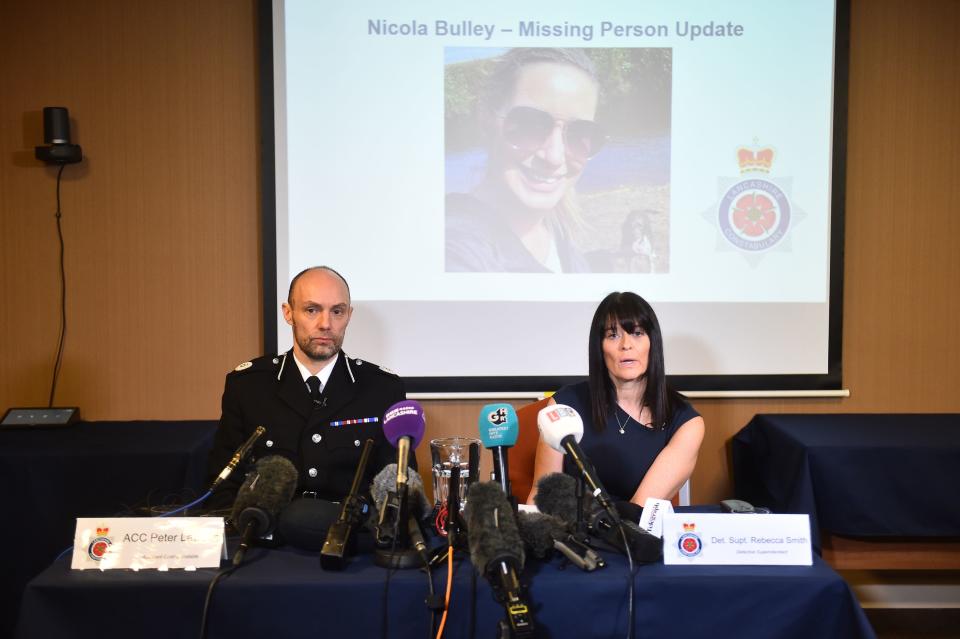
Watch: Nicola Bulley could not have been found earlier, review states
11:36 , Tara Cobham
Releasing health struggles was ‘avoidable and unnecessary’, chief constable says
11:27 , Tara Cobham
The releasing of Nicola Bulley’s health struggles to the public was “avoidable and unnecessary”, a review has found.
Lancashire Police made public details of Ms Bulley’s media situation following her disappearance in January, last year. Her body was found a mile from where she vanished in Wyre, nearly three weeks later.
Chief Constable of the College of Policing Andy Marsh said: “One of the decisions which is arguably the most significant impact on public confidence was the release of personal information about Nicola’s health.
“We found that due process was followed and it was lawful but we are in doubt that releasing this info in the manner the constabulary did was both “avoidable and unnecessary”.
Lucy Leeson reports:
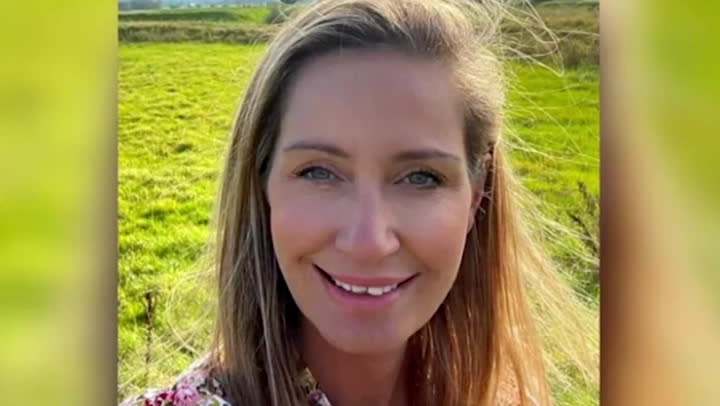
Releasing Nicola Bulley’s health struggles was ‘unnecessary’, says chief constable
MP warns of ‘serious failings’ in how police spoke about Ms Bulley
11:02 , Maya Oppenheim, Women’s Correspondent
Kate Osborne, Labour MP for Jarrow, warned “there were serious failings” in how the police spoke about Ms Bulley to the media.
“At the time I called it a deeply irresponsible decision to divulge info on Nicola Bulley, information that hindered the investigation, verged on victim blaming, adds to stigma millions face during menopause and was a serious invasion of privacy,” the politician said.
Ms Osborne argued the “police handling of this case led to mass speculation and judgements on social media - videos viewed 270 millions times” - adding “you have to question why it is acceptable for the police and so many people to comment about women's physical and mental health”.
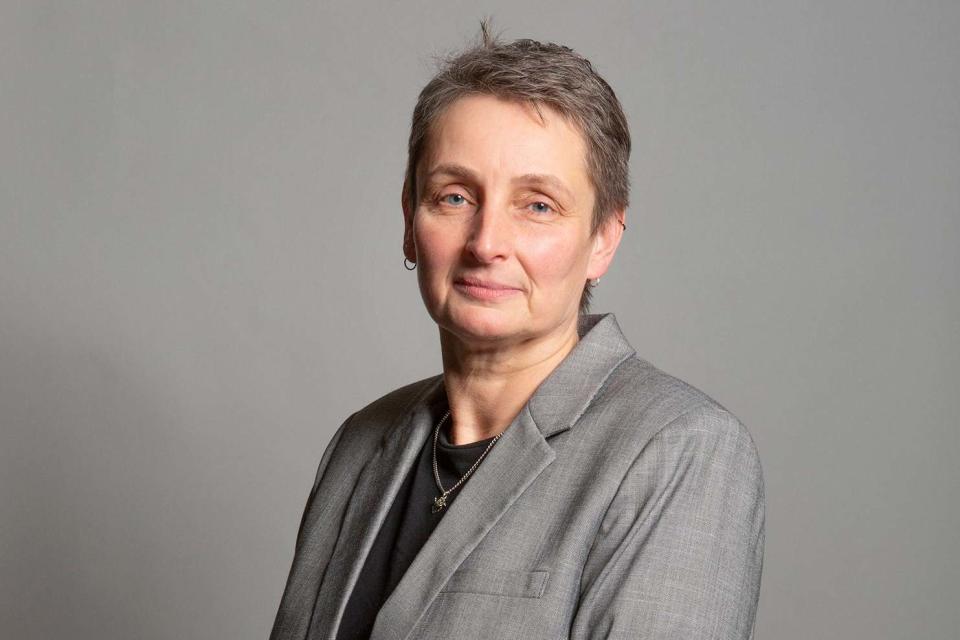
‘Police must address damaging assumptions about female victims,’ says Women’s Committee chair
11:01 , Maya Oppenheim, Women’s Correspondent
Caroline Nokes, a senior Tory MP who chairs the Women and Equalities Committee, told the Independent: "I am unsurprised at the conclusions drawn in this report. There remain significant and damaging assumptions made about female victims which clearly the police need to address and rapidly.
"Male victims are very seldom subject to this sort of victim blaming and shaming. The impact on Nicola Bulley's family must have been horrific, having her medical history dragged out and publicised in this way. It's such terrible double standards and it's driven by ingrained culture. It has to change."

Police admit handling of case ‘did significant damage’ to force
10:56 , Tara Cobham
Police have admitted their handling of the Nicola Bulley case, in particular their disclosure of personal medical details, “did significant damage to the constabulary at the time”.
Andrew Snowden, police and crime commissioner for Lancashire, and Chief Constable Andy Marsh told reporters on Tuesday that there was “not a complete collapse” in public confidence in the force, but there was “significant damage”.
They therefore stressed the importance of the force learning from the lessons of the report released today into its response to the missing mother.
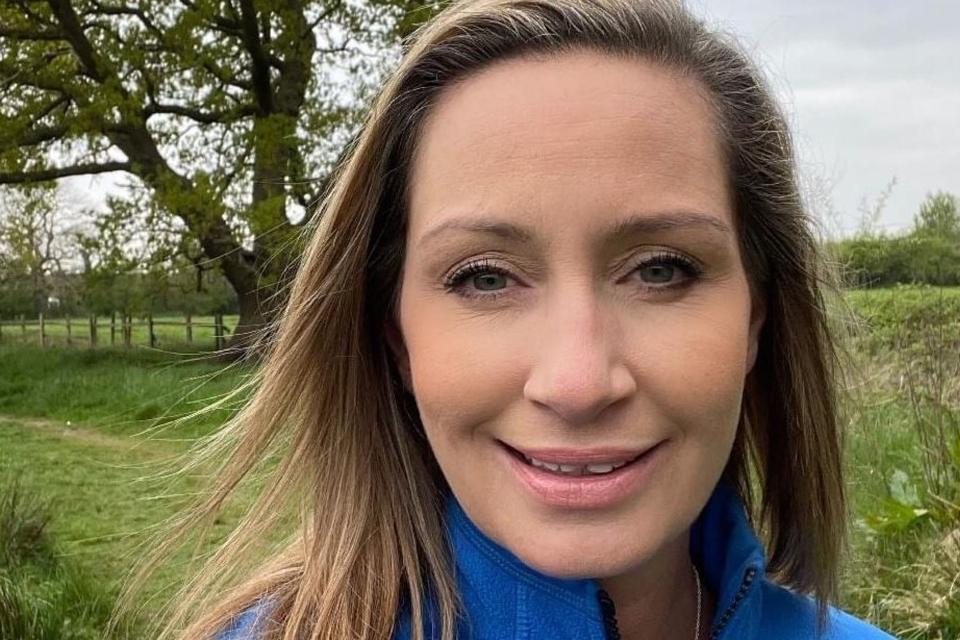
Disclosure of private medical information ‘not found to be misogynistic’
10:52 , Tara Cobham
Police have rejected the suggestion the disclosure of Nicola Bulley’s private health information was sexist or misogynistic.
Speaking at a press conference Andrew Snowden, police and crime commissioner for Lancashire, and Chief Constable Andy Marsh were asked: “Would the same information have been disclosed if Nicola was a man?”
They said the release of the details was “avoidable and unnecessary” but, after considering the question of whether the decision was sexist and misogynist, they said the report found no evidence of this.
When pushed, they said they “did not want to get drawn into that”.
Describing the decision as “very personal and damaging” as well as “very concerning” for the public, they said, “It’s private medical information whether a man or a woman.”
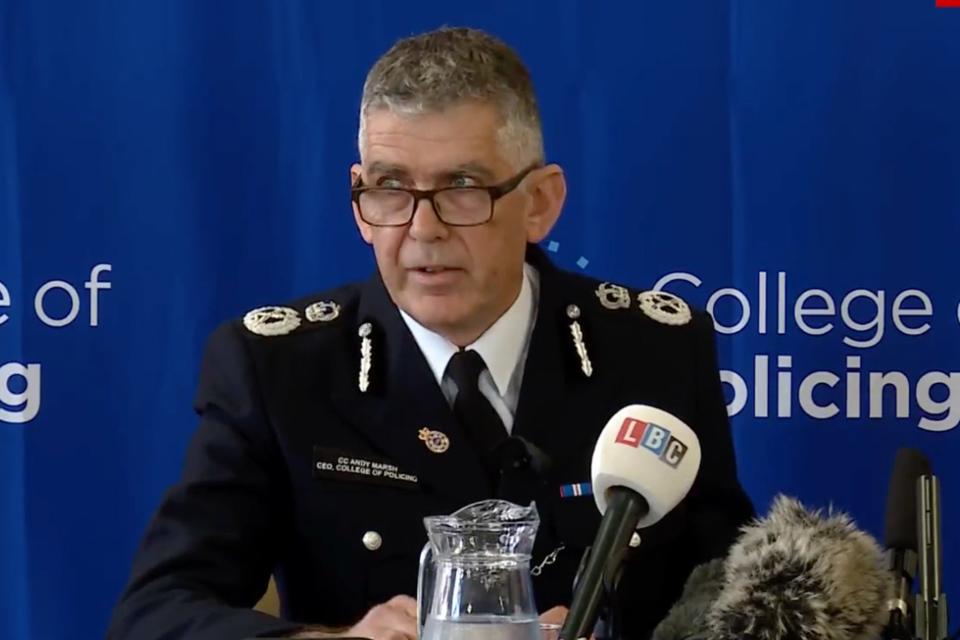
Police ‘dropped ball from first contact with media'
10:45 , Tara Cobham
Police have admitted that “the ball was dropped” from the “very first contact with the media” at the initial press conference into Nicola Bulley’s disappearance.
Speaking at a press conference Andrew Snowden, police and crime commissioner for Lancashire, and Chief Constable Andy Marsh were asked: “Would you say the ball was dropped on day one?”
They replied, “It would have been much better if Nicola had been declared a high-risk missing person from the outset,” adding, “From early on, there was lack of clarity around why Nicola was a high-risk missing person.”
He acknowledged that not doing this “probably contributed to the conspiracy theories” that flew around the internet at the time she went missing.
They described police losing control of the narrative on day one, with day one referring to the force’s “very first contact with the media” at the initial press conference.
Review: Police lost control of the media narrative
10:43 , Sam Rkaina
The review found that the investigating team had background information on Ms Bulley to support its theory she had gone into the river that was not publicly available.
The report states: “The way in which this information was eventually communicated to the public proved to be the most controversial aspect of the investigation.
“The failure to brief the mainstream media on a non-reportable basis on this information, or to adequately fill the information vacuum, allowed speculation to run unchecked.
“This led to an extraordinary increase in media and public interest in the case, which was fuelled by several newsworthy elements. These included the apparent mystery of why Nicola had disappeared, leaving behind her dog and leaving her mobile phone still connected to a Microsoft Teams call.
“The loss of control over the media narrative by Lancashire Constabulary was, in part, due to the decision making and leadership of the chief officer team.
“While all the component parts of an effective response were present, they were not fully delivered to the level required. Improved awareness, decision making and oversight from the chief officer team would have proved beneficial, including recognition of the added significance and complexity caused by the media and social media interest.”
Probe into press coverage of Nicola Bulley case not ruled out, says watchdog
10:39 , Tara Cobham
The press watchdog has not ruled out an investigation into newspaper coverage of the disappearance of Nicola Bulley earlier this year.
Her family criticised the role the media played during the probe and accused the press of having “taken it upon themselves to run stories about us to sell papers and increase their own profits”.
The chief executive of the Independent Press Standards Organisation (Ipso) said the watchdog is considering the case but not currently planning to launch an editorial standards investigation into some of the coverage.
Charlotte Dewar told BBC Radio 4’s Today programme: “We can conduct editorial standards investigation where there are serious and systemic breaches of the Editors’ Code.
“I think at this point on this issue we aren’t there, but we are very actively looking at it. And, of course, should it be clear that that has transpired then we would take that step.”
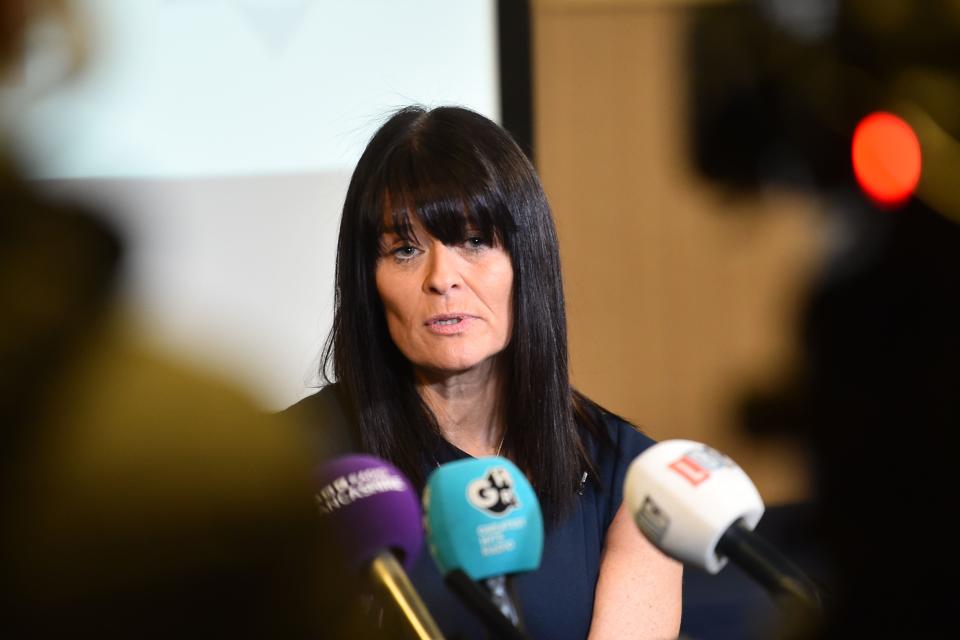
Review: Police search itself praised, if not the communication
10:35 , Sam Rkaina
The report states: “In contrast to the management of communications, the police investigation into Nicola’s disappearance itself was highly professional and was delivered to a very high standard.
“Lancashire Constabulary quickly identified this internally as a ‘high risk’ case and they deployed significant resources, beyond what would normally be anticipated, to find Nicola.
“The investigating team started with a working hypothesis that Nicola Independent external review of Lancashire Constabulary’s operational response to reported missing person Nicola Bulley had gone into the river, while not closing off other options.
“Ultimately, this hypothesis was proved to be correct following a substantial and professional search operation.”
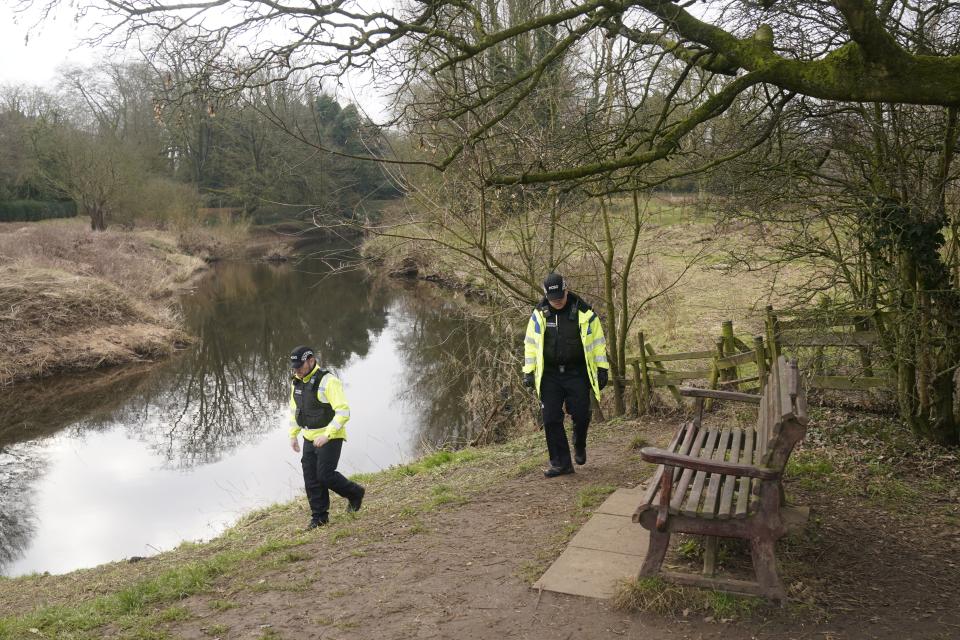
Review: List of main challenges police faced
10:29 , Sam Rkaina
The report states that a number of factors had an impact on Lancashire Constabulary’s management of communications during the investigation, including:
A global social media frenzy, including amateur ‘detectives’ on the ground in St Michael’s on Wyre posting content to social media channels
A search specialist involved in the case undertaking independent media activity
Limited coordination of police and family media activity
A search process that was lengthened and complicated by tidal flows and difficult river conditions

‘I strongly doubt police would’ve disclosed man’s medical details'
10:27 , Maya Oppenheim, Women’s Correspondent
Dr Charlotte Proudman, a family law lawyer who specialises in violence against women, told The Independent: "I strongly doubt the police would have disclosed Nicola Bulley’s private medical details to the entire world if she were a man.
"What was the relevance of sharing her personal struggles with the menopause? It served to depict an image of a fragile woman, which created even more speculation, and encouraged gender-based stereotypes and tropes. I feel for her family who watched the media pick apart details of Nicola Bulley’s life adding more fuel to the fire."
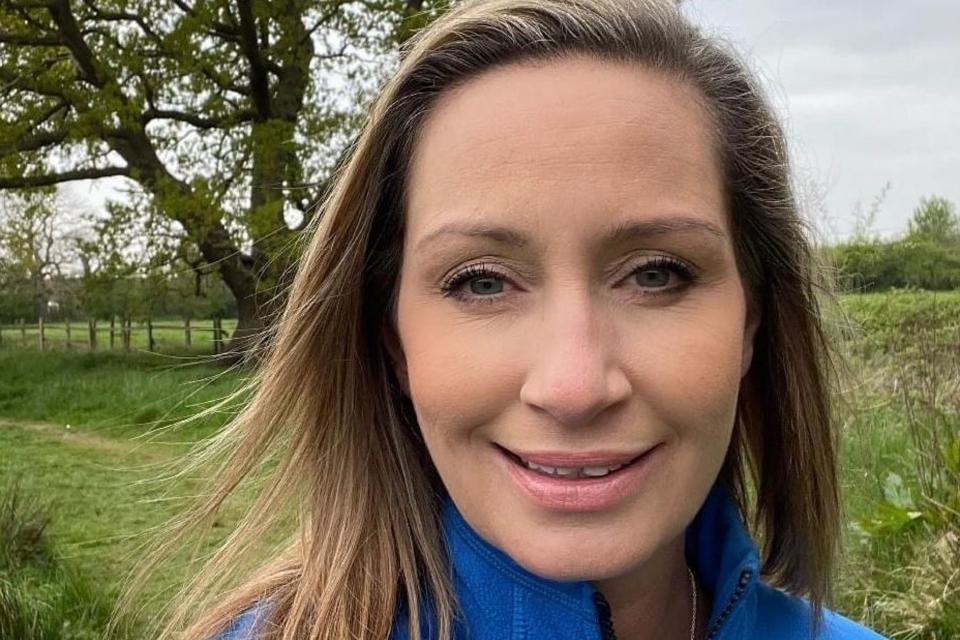
Review: Publication of Ms Bulley’s personal details ‘most controversial aspect’
10:26 , Sam Rkaina
The report finds that the release of personal information about Ms Bulley “remains the most controversial aspect of the investigation”.
“The Constabulary missed several opportunities during the investigation to remove or reduce the requirement to disclose further information about Nicola’s vulnerabilities,” it states.
“It should have anticipated that this information would be requested or would come to light from another source. In our view, despite it being lawful, the release of this highly sensitive information by the Constabulary was ultimately avoidable and unnecessary.”
MP says women do struggle with menopause but police should not have made public
10:25 , Maya Oppenheim, Women’s Correspondent
Carolyn Harris, a Labour MP who chairs the parliamentary group which specialises in menopause, told The Independent: “It was unfortunate they used Bulley’s issues around menopause in such a public way but we can’t ignore the fact there are some women who do struggle with the menopause and it does lead them down a difficult path.”
Ms Harris, the MP for Swansea East, said although she “totally agrees” the police should not have disclosed information about Ms Bulley’s struggles with menopause, it is important not to ignore the fact menopausal symptoms “can be really problematic for women”.
Biggest impact on public confidence was disclosure of private information, says police chief
10:20 , Sam Rkaina
The biggest impact on public confidence was the disclosure of private information about Nicola Bulley’s health by Lancashire Police in its investigation, said Chief Constable Andy Marsh.
Speaking at a press conference on Tuesday to discuss a report into the police’s handling of the case, he said this disclosure was “not unlawful” but “avoidable and unnecessary”.
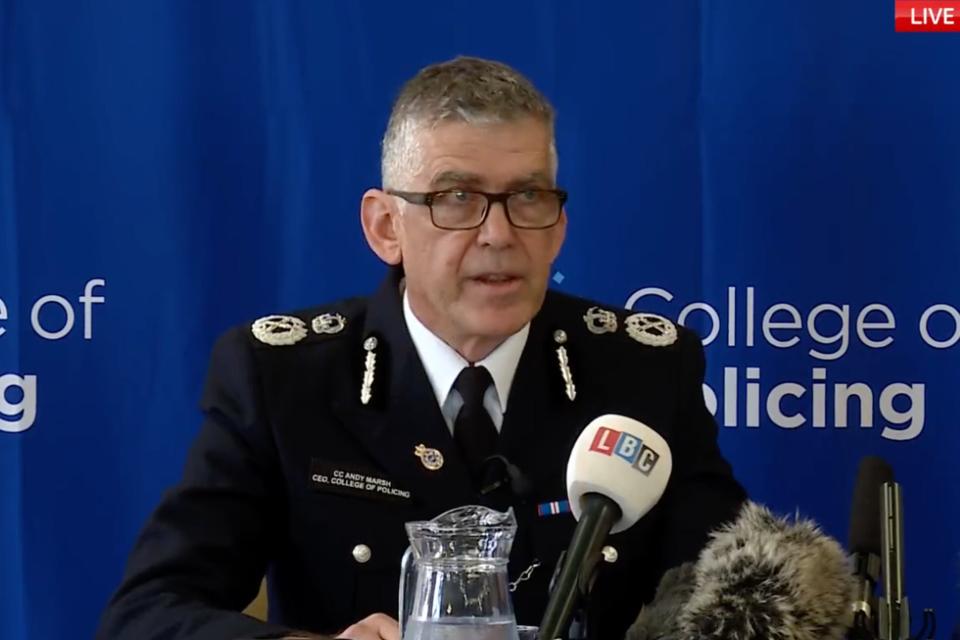
Police investigation ‘well-conducted’ while ‘there is much to learn'
10:17 , Tara Cobham
Lancashire Police’s investigation into Nicola Bulley’s disappearance was “well-conducted” while “there is much to learn”, said Chief Constable Andy Marsh.
Speaking at a press conference on Tuesday to discuss a report into the police’s handling of the case, he said it was “one of if not the most high profile” cases in terms of media interest that the force has ever dealt with.
Review: Lengthy report covers media response to search
10:15 , Sam Rkaina
The review into the case is 143 pages long and not only covers the police handling of the case but also the media response to it.
The press office of Lancashire Constabulary’s media and engagement (M&E) team logged more than 500 media calls and 75,000 inbound social media comments on the Nicola Bulley case over a period of around a month. At the peak of attention from the media, the investigation generated 6,500 news articles globally in a single day.
On social media, the BBC estimated that TikTok alone featured videos with the hashtag of Nicola Bulley’s name that had 270 million views in total.
Public ‘rightly had questions’ about disclosure of Ms Bulley’s private details
10:12 , Tara Cobham
The public “rightly had questions” about the disclosure of the private details of Nicola Bulley, said Andrew Snowden, police and crime commissioner for Lancashire.
He was speaking at a press conference on Tuesday to discuss a report he commissioned, alongside Chief Constable Andy Marsh, which said the disclosure of personal information about Nicola Bulley’s health struggles was “avoidable and unnecessary”.
Underwater search expert criticised in review of missing mother case
10:12 , Sam Rkaina
An underwater search expert who joined the search for missing Nicola Bulley has been criticised in a review of the police handling of the case.
The College of Policing report said Lancashire Police felt some of Peter Faulding’s behaviour and activities “caused challenges to the investigation”.
Mr Faulding, leader of underwater search experts Specialist Group International (SGI), told media that police had “low-tech” diving equipment, unlikely to be able to find a body.
Ms Bulley’s family became aware of this report and efforts were made to contact SGI to help the search and to ask police to get SGI involved.
But police investigators were advised that SGI did not have any better equipment that could not be secured by the force.
However, communication by Ms Bulley’s family friend to police expressed a “strong message that refusal to use Mr Faulding and SGI” would result in a “negative press release to the media”.
The report said Lancashire Constabulary felt it was placed in an unenviable situation, which would lead to a widespread negative perception that the force was not using every opportunity to locate Ms Bulley, the report said.
Mr Faulding has yet to comment on the findings.
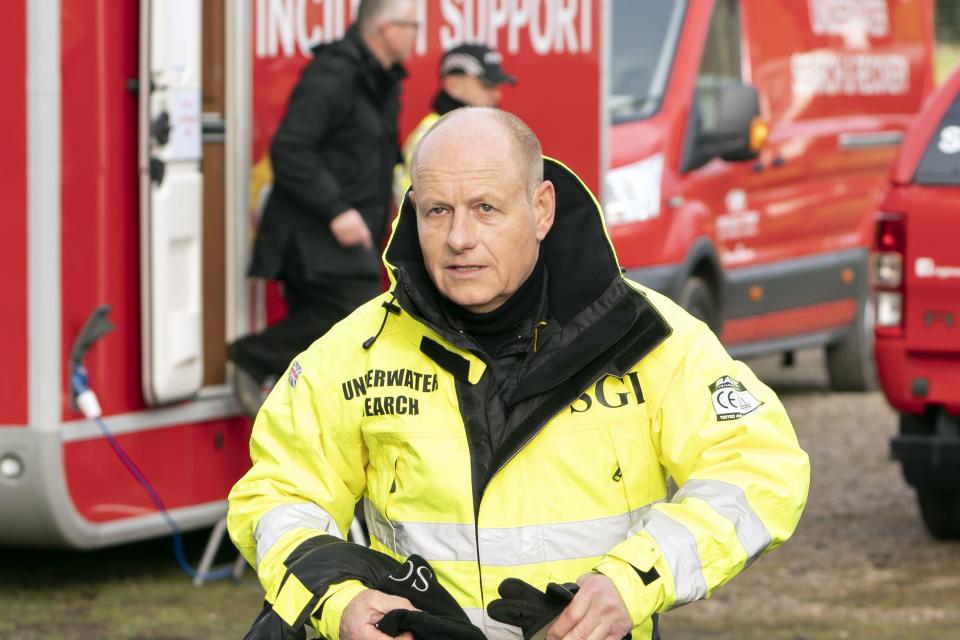
Nicola Bulley police review criticises force for revealing missing mother’s health struggles
10:05 , Sam Rkaina
Police have been criticised for revealing Nicola Bulley’s health struggles in a review of the police handling of her disappearance.
Lancashire Police’s disclosure of personal information about the missing mother’s struggles with alcohol and menopause was “avoidable and unnecessary”, the report led by the College of Policing has found.
The force came under fire for the way it made public details of Ms Bulley’s medical situation amid a media frenzy earlier this year, with even the Prime Minister expressing concern that private information had been disclosed.
The body of Ms Bulley, 45, a mother-of-two, was found in the River Wyre on February 19, about a mile from where she vanished, while walking her dog in St Michael’s on Wyre, Lancashire, on 27 January.
An inquest concluded her death was accidental, that she fell into the river on the day she disappeared and died almost immediately in the cold water.
Ms Bulley’s family says they continue to grieve her loss and do not want to comment on the report.
A review, published on Tuesday, found that in policing terms the missing persons investigation was well handled, but that the force had lost control of the public narrative at an early stage.
Senior officers failed to brief mainstream accredited reporters because trust between police and media had broken down - leading to an information vacuum and unchecked speculation.
Recap: Nicola Bulley’s family hit out at social media speculation
09:55 , Tara Cobham
Nicola Bulley’s family slammed the “wildly inaccurate speculation” online over her death after an inquest found no evidence of third-party involvement.
A two-day hearing in June into the 45-year-old mortgage adviser’s accidental death found there was nothing to suggest she was assaulted or harmed after she disappeared on 27 January.
Speaking after the coroner’s verdict, the family urged the public “to look at the facts the evidence that has been heard during the inquest, and the conclusion reached by the coroner and to ignore any amateur views and opinions and be mindful of the impact words bring”.
Matt Drake reports:

Nicola Bulley’s family hit out at social media speculation as death ruled accidental
What have reviews into the handling of the case found so far?
09:50 , Sam Rkaina
The ICO launched an investigation into the force on 17 February after the revelations of Ms Bulley’s personal information.
Lancashire Constabulary said the ICO concluded no enforcement action was needed, though the College of Policing launched its own review which will consider the revelation.
Andrew Snowden, Lancashire police and crime commissioner, said the review will also look at the operational response to what was a high-risk missing person investigation, the force’s engagement with the press and decision-making surrounding disclosure of sensitive personal information.
A separate investigation by the Independent Office for Police Conduct (IOPC) into a Lancashire officer’s contact with Ms Bulley prior to her disappearance found no misconduct but advised the force on guidance and the officer on body-worn camera protocol.
Police accompanied health workers in a multi-agency vehicle to Ms Bulley’s home on 10 January, little more than a fortnight before she was last seen, on a matter the force said was related to her “alcohol issues”.
The IOPC said it identified “two areas of learning” for the officer relating to when to activate his body-worn video and recording information on police systems.
The force should update its guidance documents for multi-agency vehicles, so officers better understand their role, the IOPC said, adding guidance could be better provided “for officers more widely when dealing with similar situations”.

Recap: Police cleared by watchdog after sharing Nicola Bulley’s personal information
09:45 , Tara Cobham
Police who shared personal information about Nicola Bulley during the search for the late mother-of-two were cleared by a watchdog.
Lancashire Constabulary faced investigations by three separate bodies into its handling of the case after coming under heavy criticism.
The force’s conduct was questioned by several high-ranking officers and public officials during the three-week search for the 45-year-old, whose body was pulled from the River Wyre in Lancashire on 19 February, after being last seen alive on 27 January.
Liam James reports:
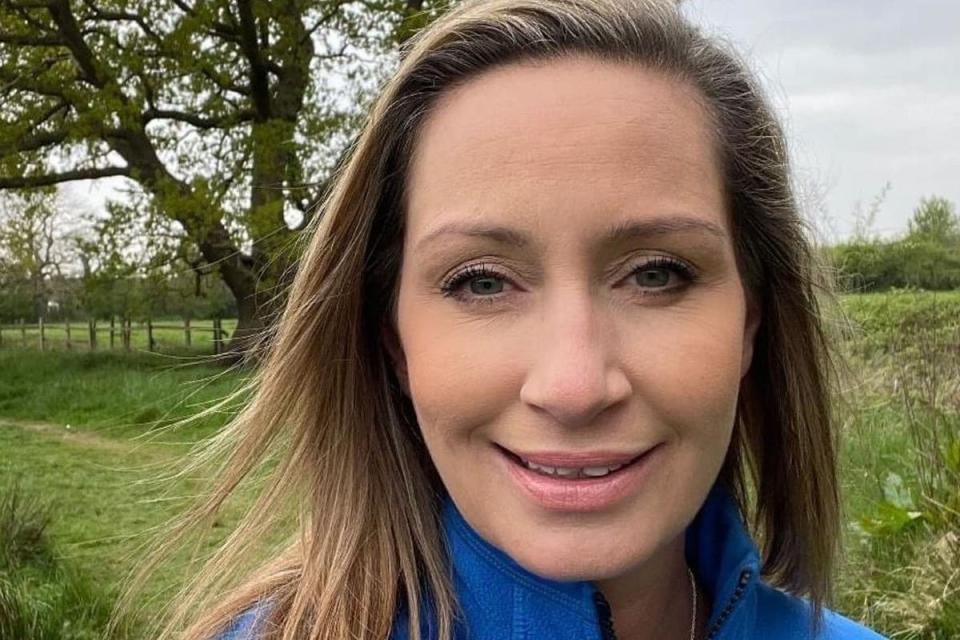
Nicola Bulley police cleared by watchdog after sharing missing woman’s personal info
When did she disappear?
09:40 , Sam Rkaina
Ms Bulley was last seen near the river at around 9.20am on Friday 27 January, after dropping her daughters, aged six and nine, at the school in the village.
She was walking her dog Willow, a springer spaniel, along the River Wyre.
Around this time she sent an email and logged into a work call which ended 30 minutes later, though she remained logged onto the call.
Her mobile phone and dog were later found by a bench by another dog-walker.
A major search for Ms Bulley saw specialist diving teams scan the river, with police heading all the way out to Morecambe Bay to investigate the possibility her body had been swept out to sea.
Her body was found 23 days after she disappeared, on 19 February, in a patch of undergrowth and branches by a river bend around one mile from the bench where her phone and dog were found.
Who was Nicola Bulley?
09:30 , Sam Rkaina
Nicola Bulley was a 45-year-old mortgage adviser and mother-of-two living in St Michael’s on Wyre in Lancashire.
Paul Ansell, Ms Bulley’s partner, said she was “fun”, “loving”, “the most loyal friend you could ever have” and an “exceptional mum”.
Nadia Fell, 39, a friend of the late mother, said Ms Bulley was “the most amazing mum ever” and added: “Anything that needed doing for the school – PTA stuff – she was always there for it.”
In the latter stages of the search, police controversially revealed Ms Bulley had been struggling with alcohol use and symptoms of the peri-menopause before her disappearance.
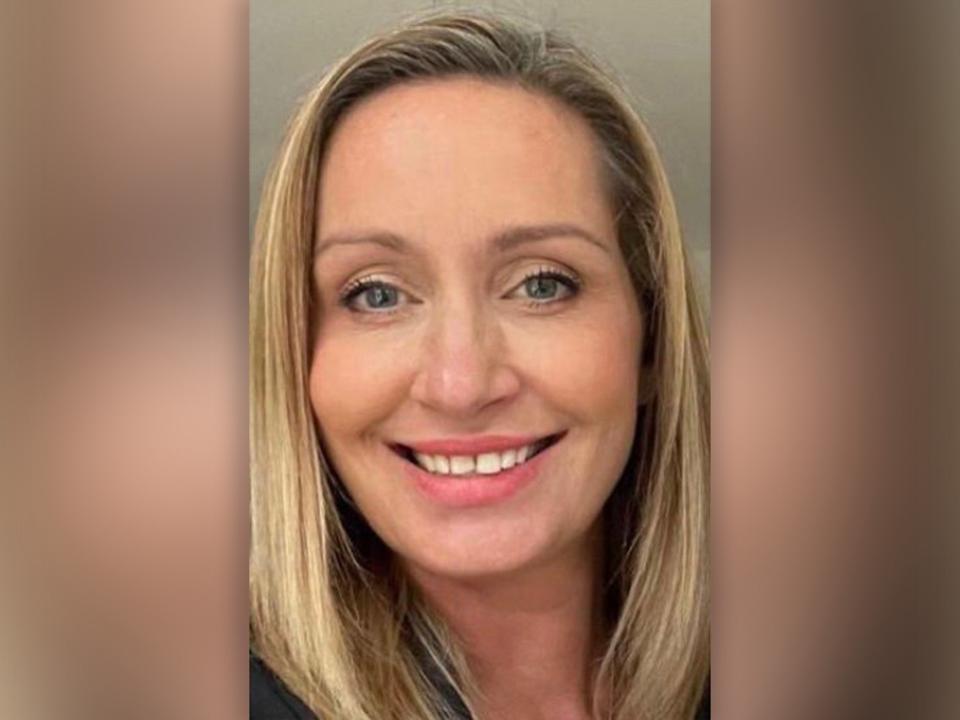
Report into police handling of Nicola Bulley case to be released
09:24 , Tara Cobham
An independent report into the police’s handling of the Nicola Bulley case is set to be released this morning.
The review led by the College of Policing aims to assess the effectiveness of Lancashire Constabulary’s response over the period that the mother was missing earlier this year, with a focus on the investigation and search, communication and public engagement, and the releasing of personal information.
Announcing its launch, Police and Crime Commissioner for Lancashire Andrew Snowden said at the time: “The public understandably feel that there remain questions about the handling of elements of the police investigation, how it was communicated, and the decision to release personal information, which need to be answered and explained.”
He added that he is “sure there will be lessons to be learned for Lancashire Constabulary” as well as the broader policing sector.


